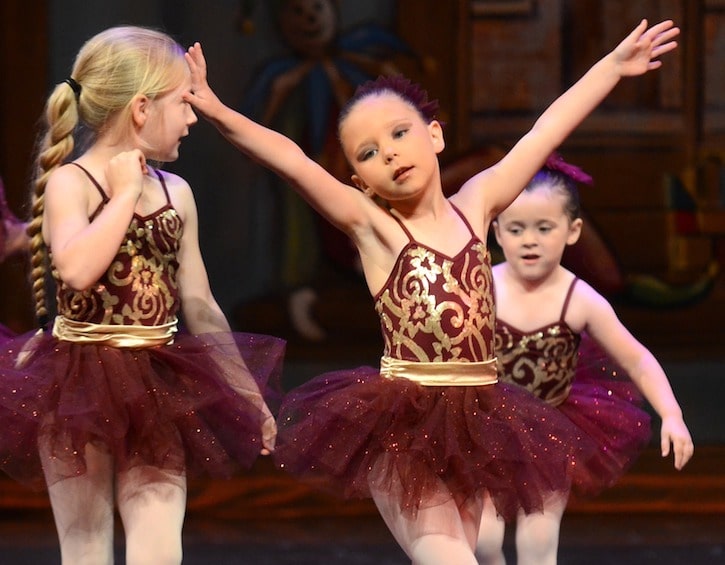

Does your little one have what it takes to be a star?
Considering that we belong to the animal kingdom, it is but natural that we adhere to nature’s law of survival of the fittest. What this means is that all of us are born with an innate need to nurture anything in us that makes us fitter, better and more likely to survive and thrive. In today’s world, we don’t need to need to improve our hunting and fighting prowess and so the search for our individual “X-factor” moves on to other areas – any noteworthy skill that we are born with, which can be honed to excellence.
It’s always better to start young. A special talent identified early in life, put through appropriate training and hours of practice, will almost definitely be rewarded with extraordinary success. No wonder then that the onus of recognising our children’s skills lies with us and is an important part of parenting. So how exactly can you recognise your child’s special talent? What are the signs that your child has a natural potential to become an accomplished musician, artist, sportsperson, writer or even a chef?
Read more: Extracurricular Activities And Classes In Hong Kong: From Toddlers To Teens


It’s in the genes!
It all begins with us! More often than not, talents are genetic predispositions – so look around and notice your own, your partner’s and the grandparents’ talents. You love music and play a lot of it at home? As your child will have been exposed to it since birth, they could probably could identify tunes and opening riffs long before his or her baby buddies could tell Twinkle Twinkle from Baa Baa Black Sheep. A less obvious example, if you love and live tennis and follow all Grand Slam matches on TV, your little one will instinctively know how to mimic a sliced backhand and a precise serve. With just the tiniest bit of encouragement, your child will take to the activity and be willing to join a class.
Read more: The Things Our Mamas Once Told Us


Observe your child
Another sign to look out for is your child’s attention span with regards to a particular activity. A child with natural talent will be able to sustain his or her interest for a longer time, while actively or passively participating in the activity. Leave your daughter to her own devices and observe her. During unstructured play, she will seek more information from the sources at hand and will engage in self-learning of the skill that she is most inclined towards. Your son is a bit shy and not very vocal? He may not tell you that he wants to join an art class, but you may find him steering his friends into art activities or role-playing a portrait session.
Also, look out for your child’s physical readiness. Some kids have well-developed fine motor skills, others are better with gross motor skills and yet others have sensory skills which will indicate what activity comes most naturally to them. For instance, a child with good eye-hand coordination may be able to play a musical instrument. Add fine motor skills and he or she will be good at intricate and detailed drawings or craftwork. Add gross motor skills to the mix and the child will be ready for a sport like squash or badminton. A gifted dancer will have balance and a musically inclined child will have a good sense of rhythm, swaying and tapping to tunes played.
Read more: Music Lessons For Children In Hong Kong: Piano, Guitar, Violin And More

Lead by example
An important part of this process is exposing the children to that activity by engaging in it ourselves. Children are like sponges, absorbing everything we say and do. So the quality of our conversations, the books and magazines we read, the music we listen to and television that we watch all shapes their young minds. If, as a family, we value and show commitment, keep to structured routines (showing a certain ethic at work, home and even in hobbies), it immediately reflects on the child’s capacity to be regular and diligent with training and practice.
Not all talents are passed down genetically. In some cases, it may simply be because you, as parents, may not have had the exposure your child now does. For instance, the ear for foreign languages. Developing such talent is also important because it can have promising future prospects. To recognise if your child has a skill that you don’t, you are going to have to rely on basic common sense, observation and your supermum instinct. For your little linguist, for example, try to retrace her basic language development to figure out how early she started speaking her first words and sentences meaningfully. Check the grasp of her first language – does she pick up subtle nuances like humour and sarcasm? If yes, she could have enhanced language skills in one or more languages. This opens up the door to creative writing, debating, public speaking, etc.
Read more: Mandarin Lessons For Kids In Hong Kong: Chinese Classes, Playgroups And Tutors


Developing the talent
It is always a good idea to encourage your child to participate in various competitions, but it is equally important to keep a low profile about his or her talent and achievements. Remember, if you have a natural-born star, she or he will automatically shine bright. If you talk about it (at home, to friends and family and on social media) it only adds pressure to excel and raises expectations. If your child stumbles at the next hurdle (which will happen invariably at some point), the feeling of disappointment is demoralising and reason enough to want to not continue. That doesn’t mean you shouldn’t celebrate success, just do it with minimal exposure until they are ready to be launched into the world. This also helps keep the child more grounded and develop the confidence to keep trying without worrying about failure.
As a parent, it’s easy to get swayed by your child’s potential, but a word of caution – don’t overdo the exposure, practice and even enthusiasm. Maintaining the same activity and intensity just because your child shows keenness might lead to overkill. It’s sometimes a good idea to give your kid a break to try out something different. If he or she is a natural, and even good at it, your child will definitely steer back to it. Following the herd while enrolling for various hobby classes isn’t necessary unless it’s for social purposes (and then, the skills acquired are just a bonus!).
Read more: How To Talk About World Events And Raise Informed Children
 View All
View All











 View All
View All





 View All
View All


 View All
View All











